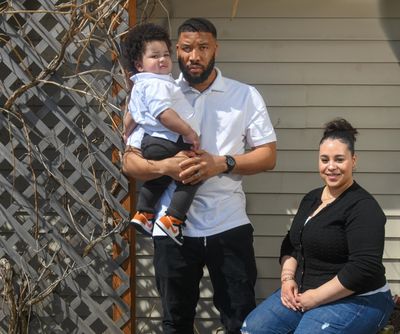Top Democrats vow stimulus eligibility for spouses of immigrants

Congressional Democratic leaders pledged Friday to make the spouses of immigrants and citizen children eligible for federal coronavirus assistance money in the next round of aid.
“That money could be their next meal, or a shirt on their back,” said Sen. Chuck Schumer, the minority leader in the chamber, in a nationwide phone call with reporters.
To receive a stimulus check from the federal government, families that filed their taxes jointly during the past two years were required to report Social Security numbers for both spouses. That’s kept potentially hundreds of thousands of U.S. citizens, including some in the Spokane area, from being eligible for financial assistance because they’ve married immigrants.
The requirement has sparked multiple class-action lawsuits, congressional leaders said Friday, and sparked interest across the aisle in ensuring U.S. citizens, including children, get checks. Amounts are capped at $1,200 for an individual and $500 for a dependent child, based on income.
How Congress addresses the discrepancy is likely to cause controversy in the next round of assistance negotiations. House Speaker Rep. Nancy Pelosi said Friday that a fix allowing spouses and children of those with taxpayer identification numbers was removed from legislation approved by the House of Representatives during Senate negotiations, and that she envisioned approval of the changes as “a bridge” for more sweeping measures that Congress could take in assisting undocumented workers in America.
“I think if the American people understood clear the injustice of it all, they’d see the other kinds of injustice … a lack of access to health care and the rest,” Pelosi said.
Rep. Joaquin Castro, the Texas Democrat who chairs the House’s Hispanic Caucus, agreed, saying he preferred a fix that would allow stimulus payments for noncitizens.
“You have a lot of workers who are using (identification numbers), who may be undocumented, who are still out there on the front lines working, many of them in dangerous jobs,” Castro said, referencing workers in meat-packing plants, picking fruit and health care.
But that position may prove unpalatable to Republican lawmakers. While Rep. Dan Newhouse, R-Wash., signaled this week that he supported a fix for ensuring citizens received their assistance, he wanted to make sure no payments were made to noncitizens.
If Congress did move to change eligibility requirements, it would have an effect on the multiple lawsuits that have been filed. That includes the challenge by Jerysse Uzoegwu, the Spokane resident and lead plaintiff in a lawsuit filed saying the restriction deprives U.S. citizens of equal treatment under the law.
“My guess is, simple answer, the lawsuit is meaningless, there’s no damages,” said Alex Cabeceiras, a Manhattan-based attorney for Derek Smith Law Group, PLLC, who’s representing Uzoegwu in her lawsuit in a phone call Friday.
The ability for Congress to act and extend the payments to U.S. citizens who are spouses of immigrants more quickly than the courts is another reason for its inclusion in the next round of federal assistance, Castro said.
Uzoegwu said she understood the reasoning behind limiting stimulus payments to U.S. citizens and that her lawsuit was about ensuring spouses, like herself, and children who are natural-born citizens receive their assistance. But she also noted that those with taxpayer identification numbers might be working, and paying taxes. If so, it made sense that they be entitled to assistance, she said.
“If you’re paying into the economy, whether you’re a citizen or not, I think that you should get the help as well,” Uzoegwu said. “I think it’s fair.”